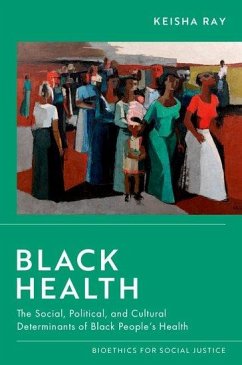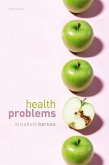Black Americans generally have worse health than White Americans, but there is nothing inferior about their bodies, despite what some may believe. Why is this? What are the causes of the health disparities that impact the Black community? Relying on research that shows Black people do not have worse health simply because of their race, bioethicist Keisha S. Ray examines how Black people's lives intersect with anti-Black racism in American social institutions, like health care, law, the environment, and housing. When these intersections occur, they result in inequitable access to the social and political determinants of health needed for proper health: access to clean air and water, health care, transportation, income, and proper housing. In examining these phenomena, Ray pays particular attention to Black people's health in the areas of pregnancy and birth, clinical pain management, sleep, and cardiovascular disease.








